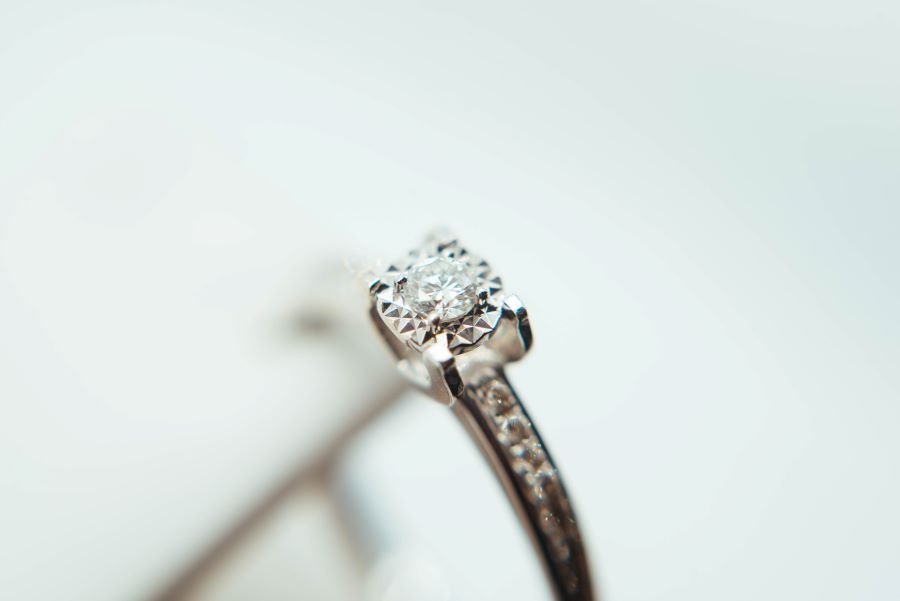Why lab grown diamonds are an ethical alternative
/Disclosure: AD, this is a sponsored post, however all opinions are 100% my own.
Are you looking for your next piece of fine jewellery? Have you recently got engaged, or are you looking for wedding rings? This is the time many of us start to look at diamond jewellery and it can be difficult to navigate. Why should you choose a lab grown diamond vs natural diamonds? Otherwise known as 'real diamonds' over a lab-produced diamond and most importantly which creates a better world?
Natural diamonds form deep within the earth and are grown through a process of applying carbon atoms that have been exposed to extreme heat and high pressure under the earth’s surface. These are are formed well below the earth's crust so they need to be mined to extract the stone. This all means that there is extensive time and resources used, which is believed to have a deterimental effect on the surrounding environment. The mining industry is also notorious for human rights issues in local communities. Even with the Kimberley Process, an international regime created to increase transparency and oversight in the diamond supply chain. It isn't easy to eliminate trade in rough diamonds and to know you have something which is conflict-free.
In recent years lab-grown diamonds, also known as ethical diamonds have been created using advanced technology that replicates the natural diamond-growing process and avoids environmental damage. Unlike natural mined diamonds or sometimes called earth-mined diamonds, these gems do not have the ethical and environmental impact which is one of the biggest disadvantages to the mined diamond industry.
Credit: Unsplash.
Types of diamonds
There are two different types of diamonds available. A natural stone which has been created with traditional diamond mining. This is open to the issues mentioned above. Where is the original source of the diamond? As much as possible is there is a clean origin? This is harder for the average consumer to find out within the complex diamond mining industry.
Then there are lab-grown stones or synthetic diamonds. These are artificially produced in a laboratory by using high pressure and something called chemical vapor deposition. Together this recreates the conditions a mined diamond would grow in and gives us sustainable jewellery.
Credit: Unsplash.
Sustainable diamonds: are they the real deal?
The main concern with buying eco-friendly diamonds is usually if they are a precious stone like their mined cousins.
Interestingly the only difference is mainly in how they are produced. Their chemical properties, their physicality and appearance is identical. They are both as tough and are resistant when struck due to their infamous hardness. Like mined diamonds, lab-created stones have tiny inclusions which make each gem unique, but often have a better clarity.
All this means lab-grown diamonds are virtually identical and they are also more affordable than mined diamonds, making them a more accessible option for us, the consumer.
Overall, sustainable lab-grown diamonds in any form; from sustainable engagement rings to precious wedding bands, offer a more ethical alternative to mined diamonds. This helps provide a guilt-free way to enjoy the beauty and luxury of diamonds.
Where to buy lab-grown diamonds?
There are various sources where you can buy yourself an ethical, lab-grown diamond. Online retailers such as Brilliant Earth, James Allen and Clean Origin sell lab-grown diamonds. You could also consider asking at your local jeweller as to whether they stock some. An alternative method would be auction houses. Keep an eye on listings as you never know what’s going to pop up! Marketplaces like Etsy (or even Ebay) have lab-grown diamonds for sale from independent sellers. Be sure to verify the authenticity and quality of the diamonds before making a purchase.
Before purchasing, ensure that the seller provides detailed information about the diamond's specifications, including its size, cut, color, clarity, and certification (if any). Additionally, inquire about the seller's return policy, warranty, and any guarantees provided.







